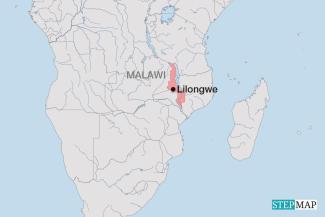Agriculture
Cultivating easier crops

Many African countries traditionally grow a select range of crops on large scale. These were mainly popularised during the period of colonialism as the preferred “cash crops.” Most common among these include coffee, cotton and cocoa.
According to 60-year-old farmer Fred Mbewe, the once lucrative tobacco cultivation has faced multiple shocks. These include the skyrocketing of prices of inputs like quality seeds, pesticides and fertilisers. The hardship has pushed farmers to adopt new crops such as maize, soybeans and cassava. For smallholders like Mbewe who has been farming tobacco for the past two decades, change was hard but inevitable.
“Things are now easier,” he says. “For example, the fertilisers we are using are more affordable compared to what we used in farming tobacco. I was only farming 20 out of 100 hectares, because I could not afford to buy tobacco fertiliser for the whole land.”
Moreover, the tobacco is very labour intensive. “It requires more labour force compared to crops like soybean and maize,” Mbewe says. He recalls times when he would need the help of his entire family, including his three school children, to assist on the tobacco farm.
Cultivating tobacco had slowly turned into a futile venture for Mbewe, who testifies: “When the prices of tobacco dropped, I was facing some difficulties in my family including having a lot of debts to provide food and shelter.”
The shift from tobacco is lauded by agriculture experts and climate change activists. They argue for diversification of crops, instead of relying on the traditionally so-called cash crops.
Tamani Nkhono Mvula, Blantyre-based director of the Civil Society Agriculture Network (CISANET) says: “Intensive crop diversification should be embraced in all areas of the country. It is time to use new ways of farming like agroforestry and conservative agriculture in all the districts.” Tamani says that the tobacco market has been affected globally as campaigns against smoking gain momentum. Moreover, changing weather patterns including irregularities in rainfall are a key factor.
Opportunity International Malawi, a local NGO, is piloting a campaign to support farmers wishing to switch from tobacco farming to other crops. In the first three years, it has targeted farmers in Lilongwe and Mchinji districts. Rural farmers like Mbewe have accessed “agriculture-centric loans” which fund farmer training and purchase of farm inputs. So far, over 39,000 farmers are benefiting from the programme.
Richard Chongo, the country director for Opportunity International Malawi, says they are working with smallholder farmer’s clubs where farmers are trained in financial literacy, business management, good agricultural practices and different agronomy practices. “The aim is to help Malawi farmers shift away from tobacco production which has changed overnight,” Chongo adds.
Benson Kunchezera is a Malawian freelance journalist based in Blantyre.
bkunchezera84@gmail.com












